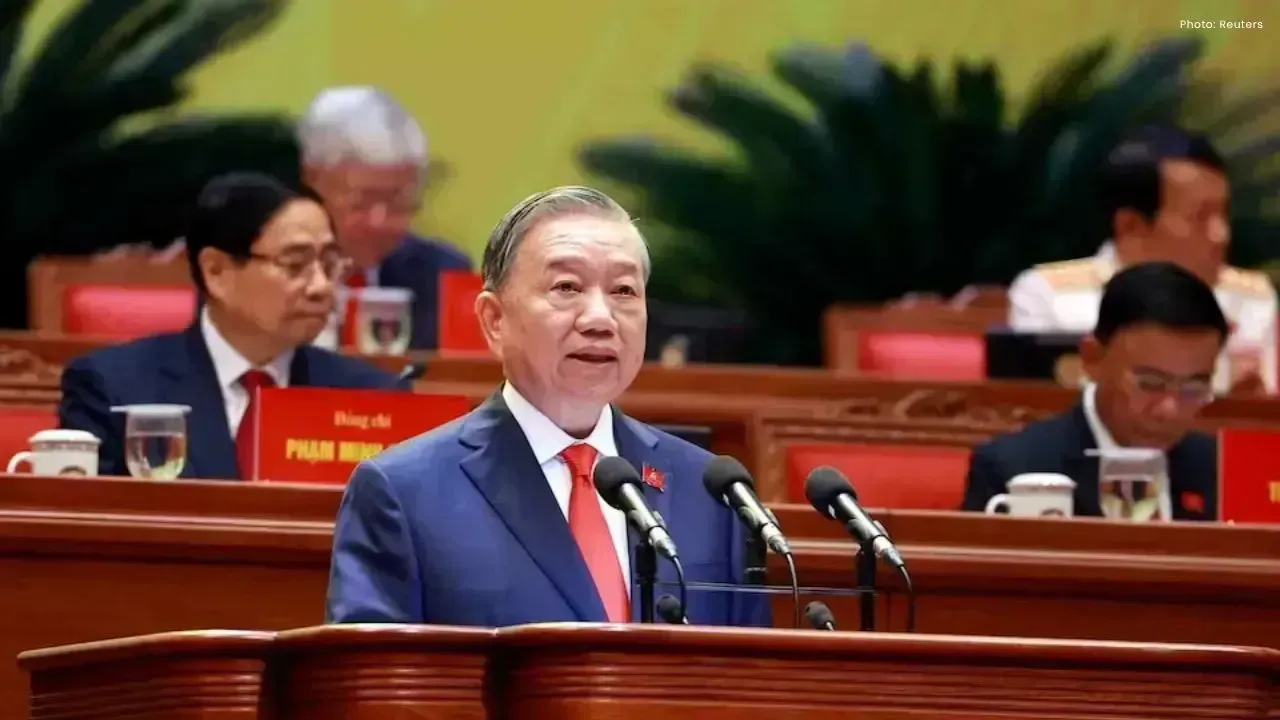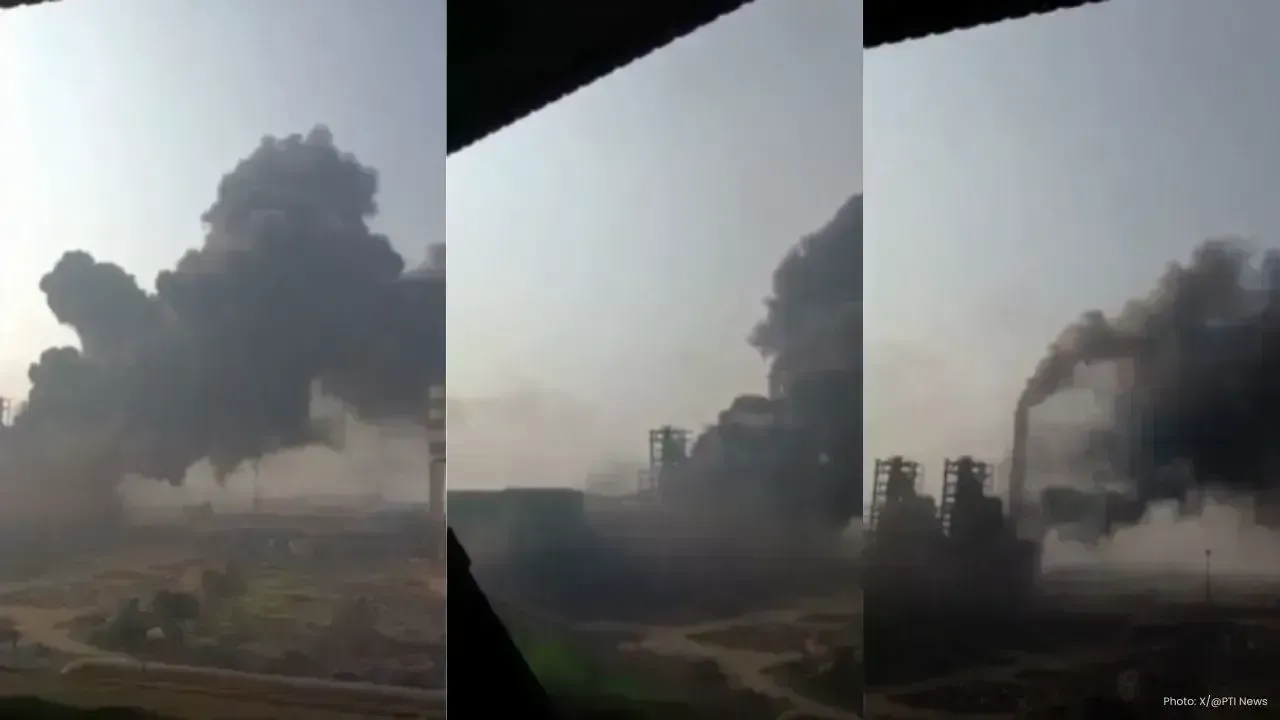You have not yet added any article to your bookmarks!

Join 10k+ people to get notified about new posts, news and tips.
Do not worry we don't spam!

Post by : Meena Ariff
The latest film from Netflix, Baramulla, directed by Aditya Suhas Jambhale, co-written alongside Aditya Dhar, strays from the ordinary supernatural thriller narrative. Instead, it immerses viewers in the genuine fears faced in Kashmir, focusing on the themes of loss, displacement, and militant violence—offering a deeply affecting exploration of the Valley's troubled past.
With a runtime of 1 hour and 52 minutes, Baramulla expertly navigates the delicate balance of reality and psychological intrigue, intertwined with supernatural undertones. At times, this intricate dance risks plunging into complexity, particularly towards a swiftly executed climax where audiences are inundated with significant backstories and revelations.
The narrative follows DSP Ridwan Shafi Sayyed, portrayed by Manav Kaul, who transitions from Reasi to Baramulla. His mission: investigate the unsettling disappearances of six schoolboys in the snowy confines of the Valley. Suspecting that militants are indoctrinating young minds and abducting them for terror training, Ridwan's inquiry unfolds alongside rising tensions and protests in the area.
Yet, Ridwan is more than a resolute officer; he grapples with his own psychological scars stemming from Post-Traumatic Stress Disorder (PTSD). Supporting him is his wife Gulnaar, whose strength and vulnerability shine through her poetry on her blog. Their children—rebellious teenager Noorie and sensitive young Ayaan—add emotional layers as the family navigates their struggles in a city that offers little solace. Tensions reveal a family on the brink, attempting to maintain cohesion amidst external pressures.
The Sayyed family inhabits a superficially refurbished house that conceals mysteries beneath its floorboards—symbolic of the Valley's concealed anguish. This abode, characterized by its antiquated elements and dark corners, enhances the film's unsettling ambiance.
Supernatural elements gradually seep into the narrative, with disquieting shadows and uncanny occurrences. The film crafts an eerie atmosphere akin to The Haunting of Hill House, yet Baramulla paradoxically argues that real terror stems from deep-rooted trauma rather than ghostly apparitions.
A compelling symbol within the film is the white tulip, acting as a MacGuffin that propels the story. While tulips traditionally symbolize love and beauty in Bollywood, here they transform into harbingers of dread. The juxtaposition of this delicate bloom against the bleak, snow-blanketed landscape evokes a hauntingly cold and somber image.
This imagery encapsulates the film's depiction of Kashmir, stripped of its traditionally vibrant aura and cloaked in a chilling stillness that resonates with the suffering of its residents.
While Baramulla is praiseworthy for its thoughtful narrative and intricate representation of Kashmiri lives—encompassing both Pandit and Muslim perspectives—it isn't without its shortcomings. The narrative can occasionally feel overwhelmed, particularly in the latter half, where a flurry of plotlines converge rapidly, challenging audience retention of its emotional nuances.
Nonetheless, the film's successful portrayal of the human toll exacted by the Valley's conflicts succeeds in transcending sensational headlines, humanizing families caught in turmoil through a fusion of psychological drama and suspense.
Baramulla stands out as a vital contribution to the portrayal of Kashmir in Indian cinema, reinterpreting horror beyond phantoms to internal struggles. Featuring compelling performances—most notably from Manav Kaul and the supporting ensemble—and a screenplay that seeks to illuminate unheard narratives, the film poignantly reflects on anguish, loss, and the hope for healing.
For those intrigued by cinematic explorations of socio-political themes through psychological horror, Baramulla promises a riveting, if at times dense, viewing experience. It serves as a stark reminder that the most formidable ghosts often lie within ourselves.










Indian Man Dies Mysteriously at Phuket Music Festival, Cause Unknown
remove news channal name give me rewrit in this news and full detaike news.news like orignal and tre

Manchester City Signs England Defender Marc Guehi From Crystal Palace
Manchester City signs 25-year-old England defender Marc Guehi from Crystal Palace for £20m, boosting

Japan Snap Election Sparks Bond Surge Amid Finance Concerns
Japan’s PM calls early election to back reflation plan. Bond yields hit decades-high as voters weigh

Trump Threatens Huge Tariffs on French Wine Over Peace Board Snub
Donald Trump warned of 200% tariffs on French wine after France rejected his Peace Board plan and mo

Prince Harry, Elton John Sue UK Tabloids Over Privacy Breaches
Prince Harry and Elton John accuse UK tabloids of phone hacking and stealing private info, calling i

Minnesota Man Says ICE Broke In, Handcuffed Him, Dragged Him Into Snow
A U.S. citizen in Minnesota says ICE officers broke down his door, handcuffed him in shorts and Croc